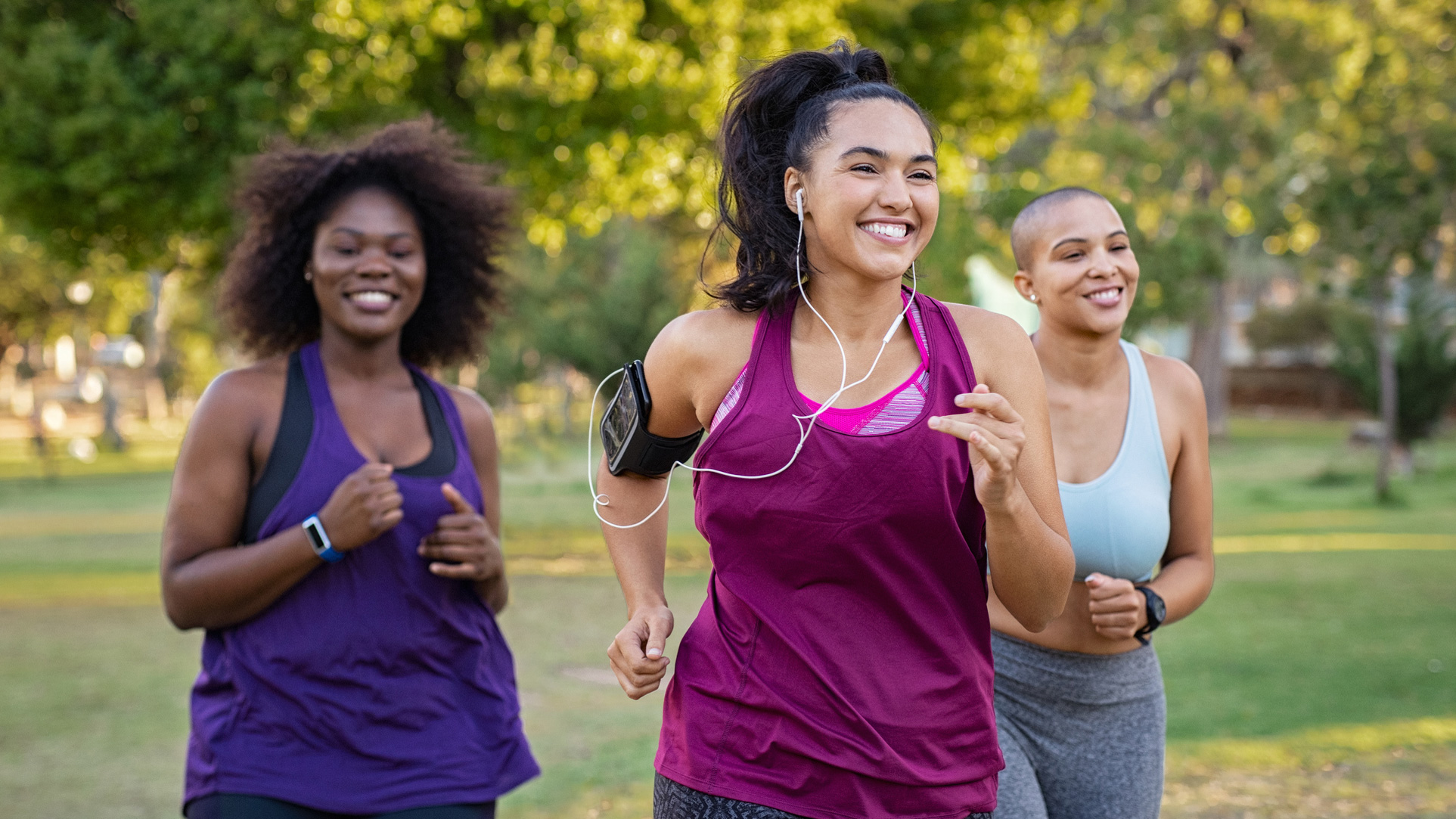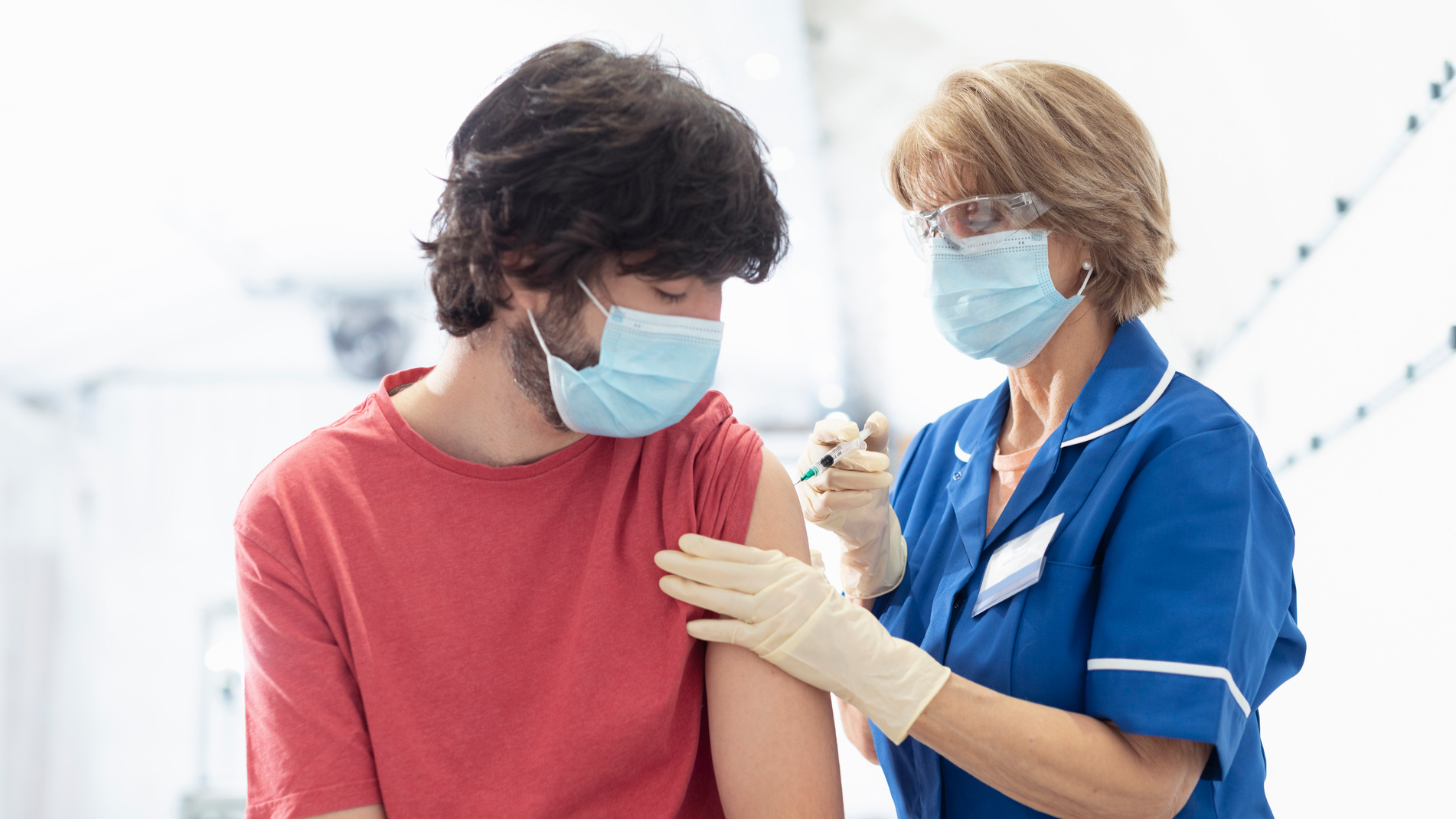Running after a COVID vaccine could increase the benefits, suggests new research
Early findings suggest a short bout of moderate exercise increases antibody levels in the recently vaccinated


If you've not gotten your COVID-19 booster shot yet, you might be wondering if there's anything you can do to make it more effective at fighting the virus once you do get it. According to an early small-sample study, you might be able to do just that.
Research has found lacing up the best running shoes for men, or best running shoes for women, and hitting the great outdoors for some exercise could help improve the effects of the COVID-19 vaccine, with no side effects. The study, published by researchers from Iowa State University, examined several different vaccines, but the main focus here is on the study of 36 participants, half of whom exercised after getting the Pfizer COVID-19 vaccine.
The participants, all of whom were regular exercisers and all had the same vaccine, were summoned 72 hours after their vaccines, for safety reasons, and were asked to jog along the same route at 60-70% of their maximum heart rate (the sort of thing you could measure on one of our best running watch entries). The researchers then collected blood samples, and subjects were asked to record any side effects, every 24 hours for the first 72 hours after each vaccine.
The researchers measured the levels of COVID-fighting antibodies in the participants and found "a greater increase in the exercise group over time". The results were similar to other vaccines tested, such as Influenza.

The researchers write: "These findings suggest that adults who exercise regularly may increase antibody response to influenza or COVID-19 vaccine by performing a single session of light- to moderate-intensity exercise post-immunization."
Although the scientists sent the COVID participants for a run, it's likely any kind of moderate-intensity exercise would do the trick. It could be a session on the best rowing machine, for example, or treadmill. High-intensity interval training, by definition, isn't exactly a moderate-intensity exercise, so you may need to wait for an additional day or two after your vaccine to go back to your regular HIIT class.
At the time of writing, 70% of eligible adults in the US have received booster shots. If you're only just becoming eligible due to having your second dose later than others, or you've yet to get your second shots, it's a comfort to know you can do something yourself to likely increase the odds of the vaccine's effectiveness.
Start your week with achievable workout ideas, health tips and wellbeing advice in your inbox.
In addition, COVID-19 has been found to hit the overweight and older contingent harder than others. If you're looking to use the global health crisis to kick-start your weight loss journey, why not go for a brisk walk or short run to perhaps maximize the vaccine's power? If you'd rather walk instead of run, it's easy to get started: grab some comfortable clothes and your best shoes for walking and head out there for a half-hour stroll.
Matt Evans is an experienced health and fitness journalist and is currently Fitness and Wellbeing Editor at TechRadar, covering all things exercise and nutrition on Fit&Well's tech-focused sister site. Matt originally discovered exercise through martial arts: he holds a black belt in Karate and remains a keen runner, gym-goer, and infrequent yogi. His top fitness tip? Stretch.
